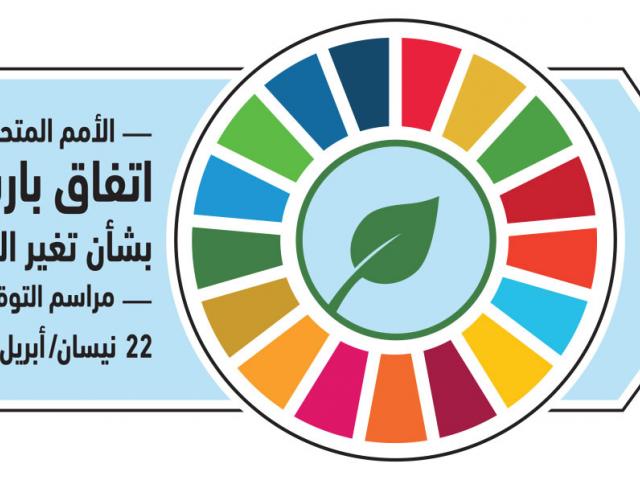
Civil society organizations urge Egypt to swiftly ratify Paris Agreement on climate change
Press Release
The undersigned organizations call on Egypt to ratify the Paris Agreement on climate change in advance of the international climate conference in Marrakesh, to be held on November 7, 2016. Egypt signed the agreement in April 2016, but has thus far not put it to the parliament for ratification, a step necessary to complete accession to the agreement.
The Paris Agreement, adopted in December 2015, sets legally binding guidelines to support efforts to confront climate change and limit the increase in global average temperature less than 2°C above pre-industrial levels, with a target of 1.5°C . The agreement seeks to push member states to reduce greenhouse gas emissions (mitigation) and to strengthen states’ capacities to address the adverse consequences of climate change (adaptation). It sets general guidelines for reaching these targets by offering financing, capacity building, and technology transfer to developing states in particular, all in a framework of high transparency.
The undersigned organizations urge Egypt to accede to the agreement and join the global climate movement. Not only is this a common responsibility of all states in order to confront climate change; it is also of direct interest to Egypt. Egypt is one of the most vulnerable countries to climate change, with impacts ranging from water shortages and drought to reduced crop yield, increased desertification, rising sea levels, and losses in resources. It is in Egypt’s interest to take advantage of the agreement’s instruments to draft and implement plans to adapt to the anticipated impacts of climate change.
Egypt also has a stake in reducing greenhouse gas emissions like carbon dioxide. Although Egypt’s contribution to global greenhouse emissions is minor, emissions are relatively high considering GDP and population numbers, which has adverse impacts on the efficient use of natural resources, environmental protection, and human health.
Egypt should avail itself of the agreement instruments to reduce these emissions, take advantage of its wealth of renewable energy sources, and improve environmental and health protection.
The Paris Agreement was the object of much attention by the international community. The Paris climate conference drew the biggest gathering of heads of states and governments, as well as numerous popular activities demanding rapid action on climate change and major contributions from non-state actors. The initiatives and contributions from states, agencies, and individuals have continued unabated since the conference, a reflection of the widespread realization of the gravity of the situation and the strong determination to confront it. This determination is also seen in the speed with which the Paris Agreement entered into force. Requiring the accession of 55 members responsible for at least 55 percent of greenhouse gas emissions, the agreement was not expected to enter into force until 2020, but this threshold was crossed on October 5, 2016, making the Paris Agreement the fastest UN convention to ever enter into force.
Egypt enthusiastically participated in preparation of the convention. It represented the African group at the Paris climate conference, which was attended by the Egyptian president as well. The president spoke of the urgent need for an international agreement to strongly confront climate change and of the shared responsibility of all states, stressing the importance of focusing on adaptation to the climate change as well as mitigation. But this concern and enthusiasm have not been equally reflected in Egypt’s performance. Egypt’s INDC to the Paris conference were overly general, and the country has not ratified the convention yet.
Now that the convention has entered into force, the first conference for member states (CMA) will be held in tandem with the international Marrakech conference in November. It will discuss guidelines and instruments for of implementation of the Paris agreement. The undersigned organizations urged Egypt to quickly accede to the convention so that it could contribute to drafting these guidelines and instruments in a way that meets national needs and the needs of developing nations in general.
The organizations also call on Egypt to re-submit its national contributions in more detailed form, in line with precise procedural standards subject to measurement and monitoring, as required by the Paris Agreement, so that it can take advantage of the instruments for international cooperation offered by the agreement to expedite and expand national climate plans. The dangers of climate change cannot be put off any longer.
Signatory organizations
Egyptian Initiative for Personal Rights
Egyptian Center for Economic and Social Rights
Egyptians Against Coal
Habi Center for Environmental rights
Egyptian Association for Collective Rights
Egypt 350
Climate Movement Network Egypt



